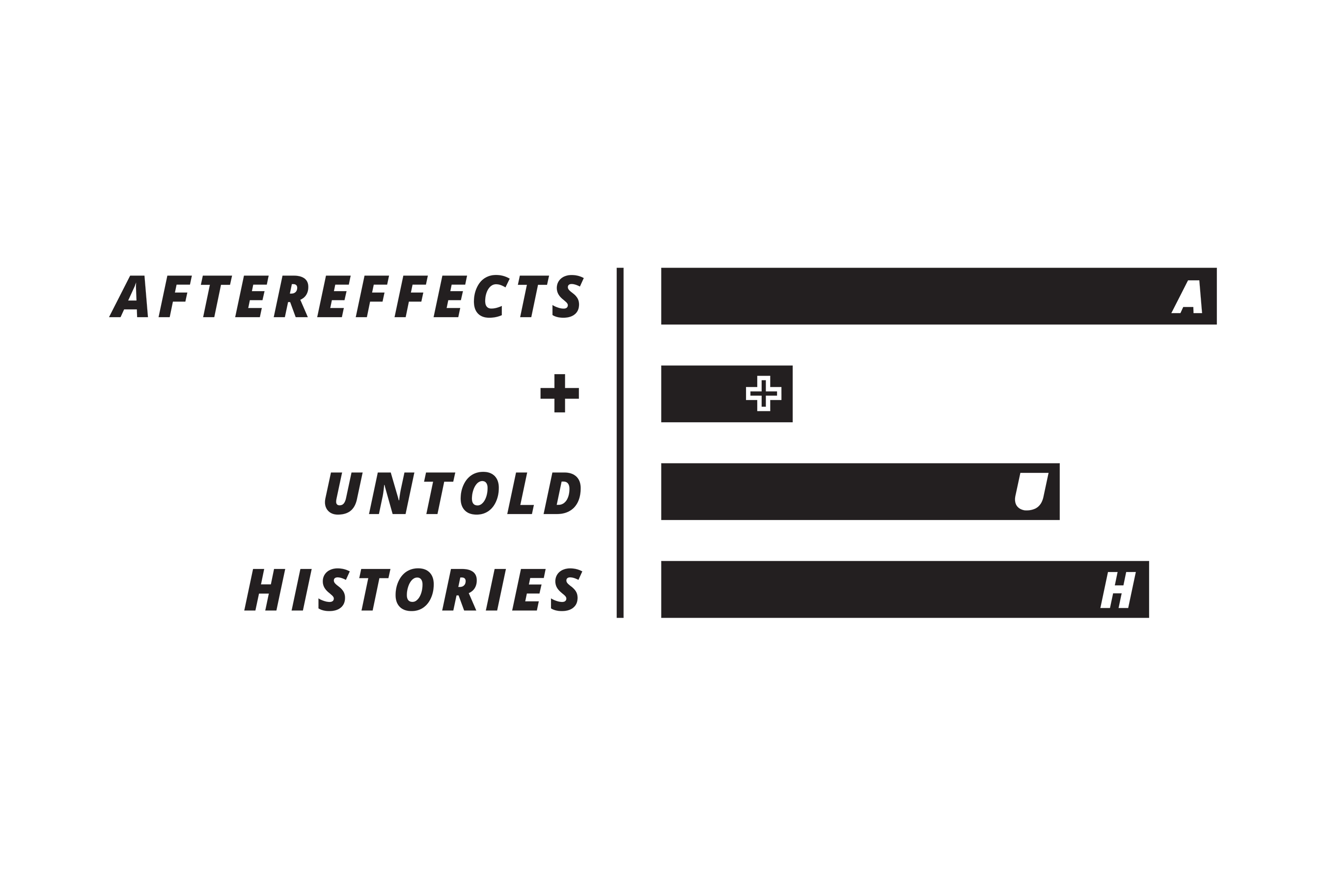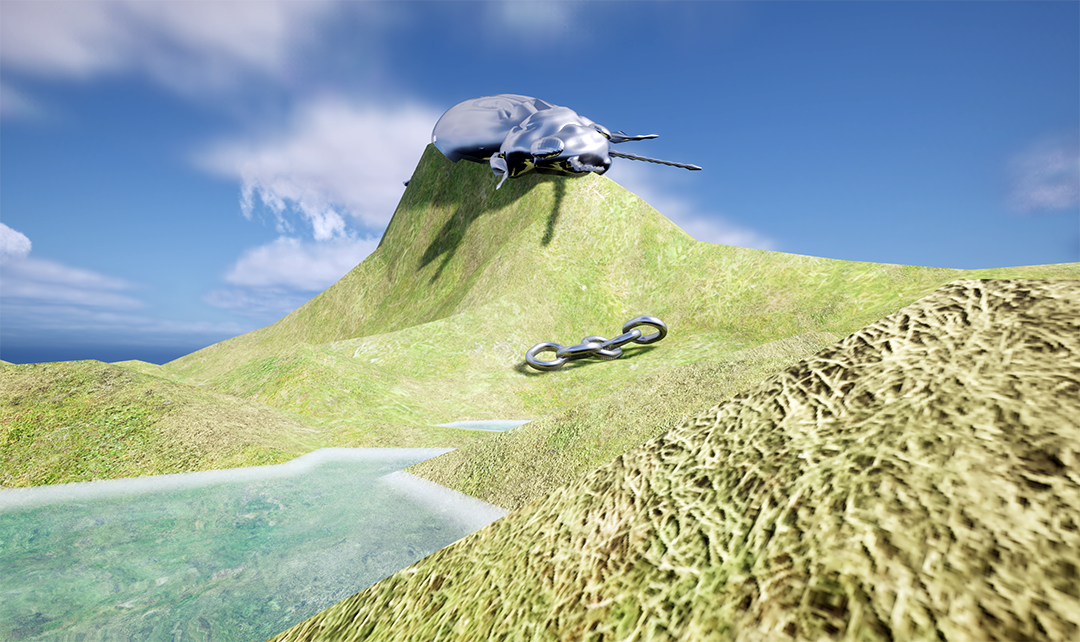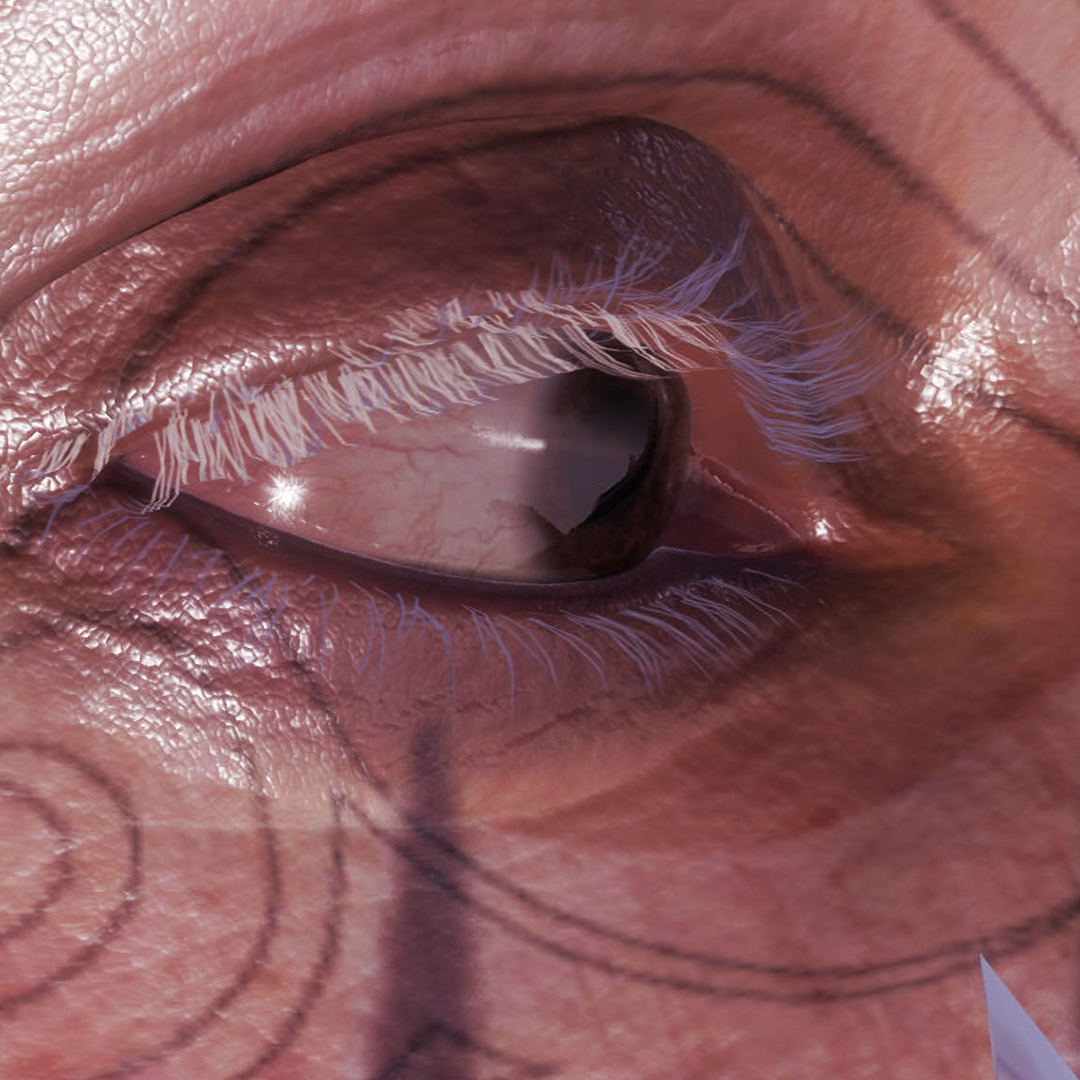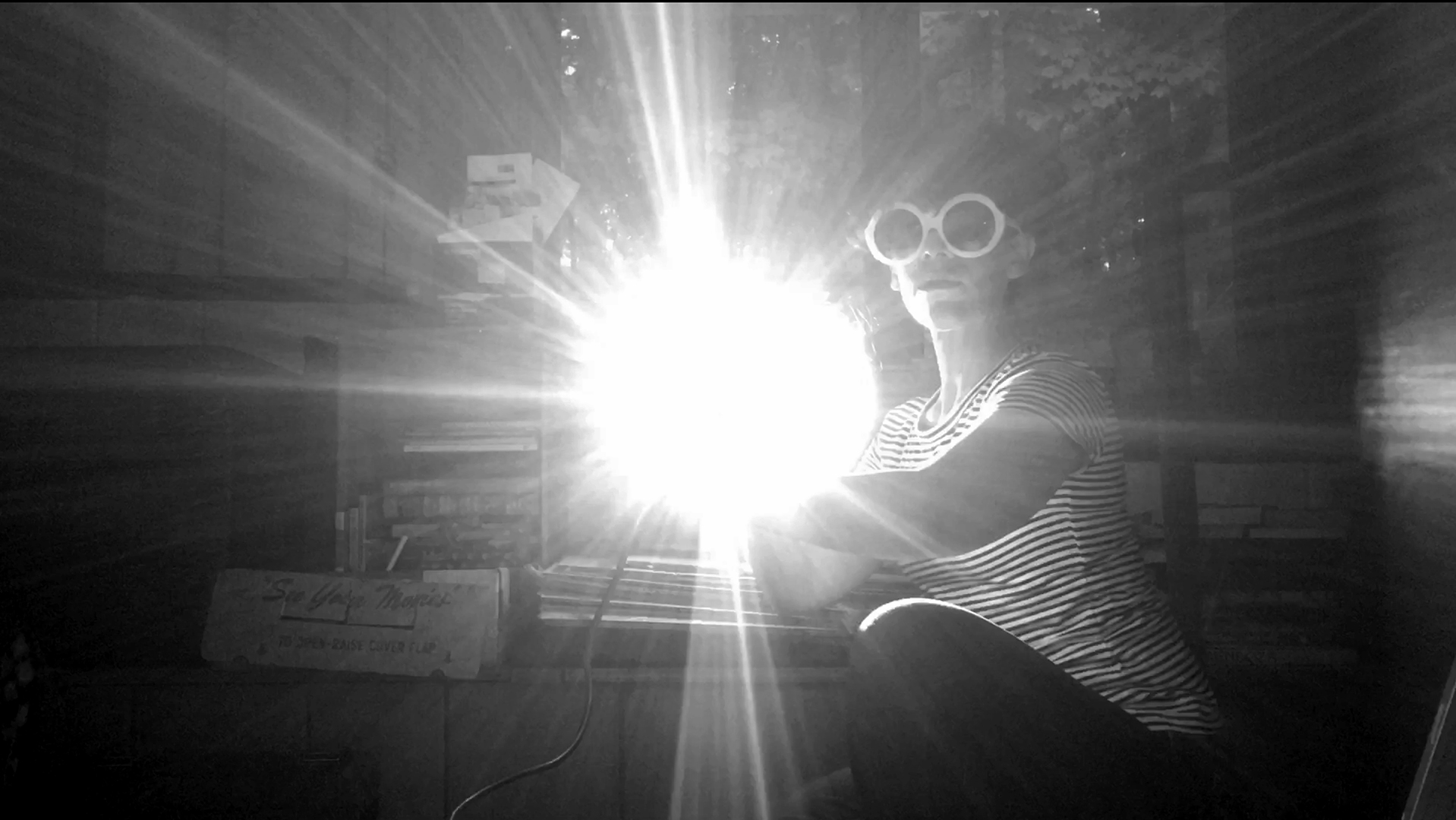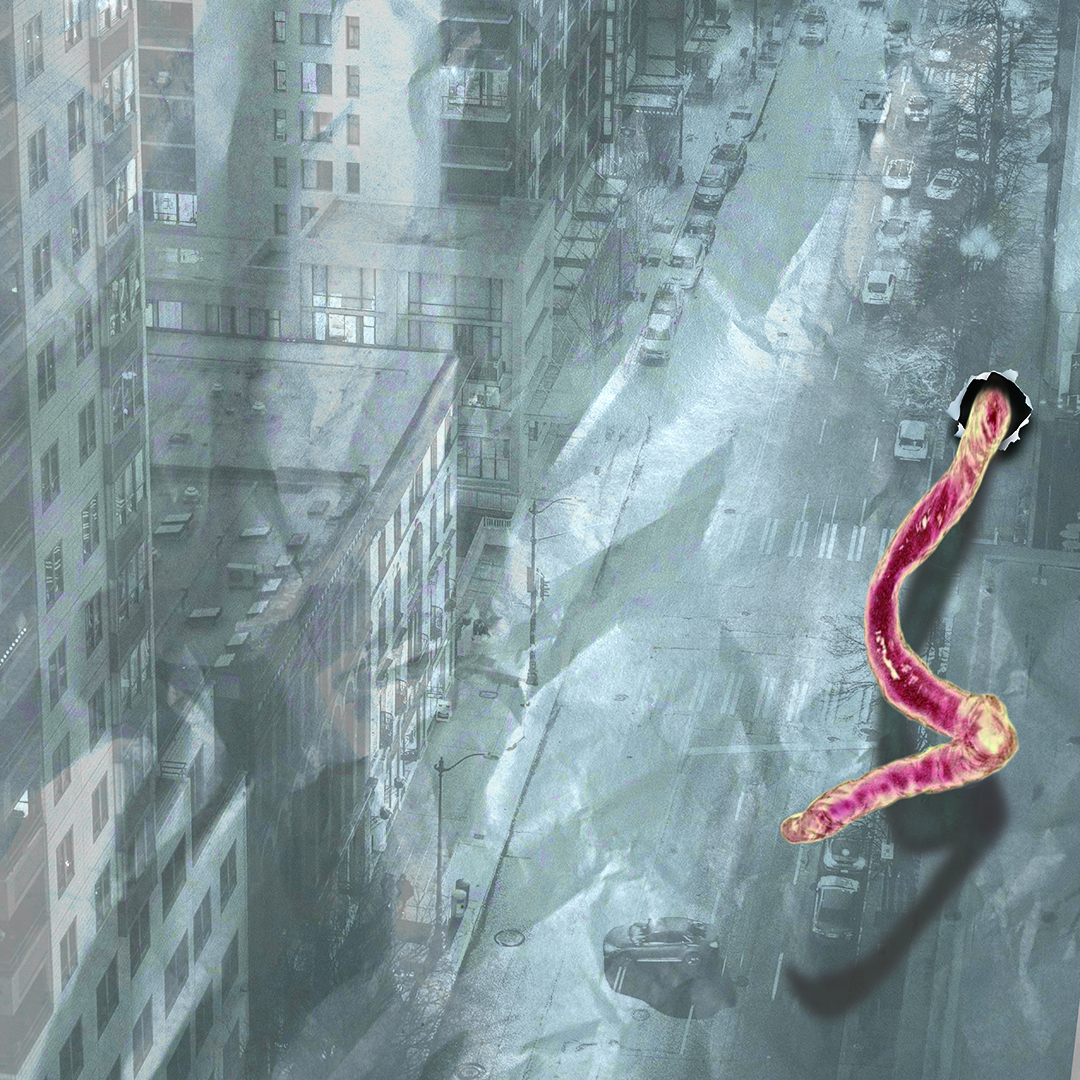
Programmed as part of the NCAD Gallery Student Open Call 2025, the Gallery is delighted to present URBAN PARASITE: An exhibition of Chongquig Work Institute artists Bao Dachen, Dong Xun, and Wu Jianping curated by Yifeng Wei, NCAD School of Visual Culture PhD candidate and curator.
PROGRAMME
Panel discussion 19 March, NCAD Gallery Foyer, 5PM.
City as Methodology with Dr Jye O'Sullivan, Yifeng Wei, and Dr Karl Whitney. All are welcome to attend, no booking required.
Exhibition opening & walk-through 19 March, NCAD Gallery, 6PM.
Join Yifeng Wei, NCAD School of Visual Culture PhD candidate and curator of URBAN PARASITE on a walk-through of the exhibition. All are welcome to attend, no booking required.
When the humid subtropical monsoon retreats, the shimmering vapour rising from the confluence of the Yangtze and Jialing rivers becomes ensnared once more between the endless mountains, forming the lingering fog that cloaks Chongqing, an inland city in southwestern China. Featuring such a unique landscape and climate, Chongqing is a city about disappearing. Its perennial mist once overshadowed the secrets of the nuclear plant during the Cold War and nowadays its vertically stacked buildings obscure the prying eyes of GPS satellites.
In the opening scene of Crazy Stone, a film set in Chongqing, an idling layabout flirts with a young woman aboard a cable car suspended between the two great rivers. “Whenever I look at the city from this angle,” he muses, “I feel strongly that the city is a mother and we live in her womb...maternity, I feel such a maternity on you...”“Vermin,” other passengers retort unanimously. This amusing exchange delineates a thread of intimacy between the city and its inhabitants—a protective maternal body and its fragile foetus, or in another sense, a hospitable host and its voracious parasite.
In an era of pervasive surveillance and technological homogenisation, can a city still serve as a sanctuary? How do its residents forge a parasitic symbiosis with the urban fabric when technology becomes a vehicle for oppression? The exhibition Urban Parasite at the NCAD Gallery reimagines ‘Chongqing’ as an active verb—an ongoing negotiation between people, landscape, and climate—offering an embodied and adaptable response to the current crises. This exhibition showcases two collaborative video essays by Chinese artists Dong Xun, Bao Dachen, and Wu Jianping, members of the Chongqing Work Institute. While Rear Area (2018) uncovers the Artillery School’s concealed history and Chongqing’s strategic role in retreat and subterfuge, Defence System of the Mountain City: Action Guide for a Three-Dimensional City (2022) conceptualises a non-transparent methodology, drawing from the city’s rich history of resistance, shaped by over seven centuries of adaptation. Both works explore strategies for survival within the urban matrix, weaving a narrative of vertical space that extends from the underground to the clouds.
Curator, Yifeng Wei
Jye O’Sullivan is an art historian and researcher of visual cultures. Their research has previously focussed on the intersections between artistic practice and cybernetics, with a specific focus on the artistic uses of cybernetics within a Latin American context. Jye’s present research interests include, art and cybernetics, contemporary art from Latin America, posthumanism, queer ecology, ecological ethics and the philosophy of technology. They completed their BA in History of Art and MA in History of Art and the Theories and Histories of Architecture the University of York (UK), before completing their PhD in History of Art at the Technological University of Dublin.
Recently, Jye co-led a three-year Erasmus+ funded project aimed at developing ecological ethics for technological education, Ethico, in conjunction with Noel Fitzpatrick and the European Culture and Technology Laboratory (ECT Lab+). They have been the recipient of several Marie-Curie secondment grants to the Universidad de las Artes, Guayaquil and the Institut de Recherche et d'Innovation, Paris, as well as a Getty Institute travel grant to pursue research on the Centro de Arte y Comunicación. Jye has also exhibited sound installation works at the MAD Lab (Limassol) in association with the ECT Lab+ and across Dublin.
Karl Whitney is a writer of nonfiction. He is interested in stories from the present that he can reconstruct through interviews or experience first-hand as a reporter, or those from the past that can be gleaned from the historical record. Karl’s work often focuses on landscape, particularly cities. His debut, Hidden City: Adventures and Explorations in Dublin (Penguin, 2014) was a highly acclaimed travelogue that playfully investigated Ireland’s capital in the aftermath of the economic crash. It was a Guardian book of the week. His second book, Hit Factories: A Journey Through the Industrial Cities of British Pop (Weidenfeld & Nicolson, 2019), was a personal exploration of the musical and social history of the UK’s regional cities, and was also a Guardian book of the week. In 2013, he won the Authors’ Foundation John Heygate award for travel writing. In 2019, the Irish Times named him as one of the top ten rising stars of Ireland’s literary scene.
As a journalist he has written for the Irish Times, Guardian and London Review of Books, and many other publications, about subjects including: the agoraphobic advertising man who recorded the sounds of mid-twentieth century New York; the long, slow death of the British estate pub; and an underground fire smouldering beneath a golf course in Gateshead.
He has a BA in History and English and a PhD in French History from University College Dublin, and an MA in Modernism from University of East Anglia.
Yifeng Wei is an artist, curator, and PhD candidate in Visual Culture at the National College of Art and Design in Ireland. While reflecting on the legacy of cybernetics and system theory, Wei’s research interests lie in digital colonisation and emancipation, as well as resistance against algorithm bias and surveillance capitalism. His study relates current technological surveillance to the desire for certainty in cybernetics and system theory and manages to find a possible way of resistance by resorting to the aesthetics of opacity. Wei’s investigation of such aesthetics involves writing an alternative art history focusing on anonymous and incognito artists. Also, it touches upon the analysis of artistic practices that protect and liberate the oppressed by adopting nontransparent technologies, including the black box mechanism in artificial intelligence. Revolving around artists who apply such a nebulous approach to resist the power structure looming behind technology society, his recent curatorial practice, “The Cloud of Unknowing”, was shortlisted as a finalist for Hyundai Blue Prize Art+Tech 2023.
魏逸丰是艺术家、策展人、爱尔兰国立艺术与设计学院的视觉文化博士候选人。 在反思控制论和系统论遗产的同时,他的研究兴趣在于数字殖民与解放和对算法偏见与监控资本主义的抵抗。 他的研究将当前的技术监控与控制论和系统论中对确定性的渴望联系起来,并设法通过诉诸不透明的美学找到一种可能的抵抗方式。 他的研究涉及到书写以匿名、假名艺术家为核心的边缘艺术史。同时,也包括分析那些运用不透明技术以保护和解放被压迫者的艺术实践。 围绕着那些采用不可见性来抵抗技术社会背后权力架构的艺术家,他最近的策展实践 "未知之云 "入围了现代汽车文化中心Hyundai Blue Prize Art+Tech 2023年度艺术大奖。
NCAD Gallery, 100 Thomas Street, Dublin D08 K521. Contact: Anne Kelly, Curator, NCAD Gallery.
